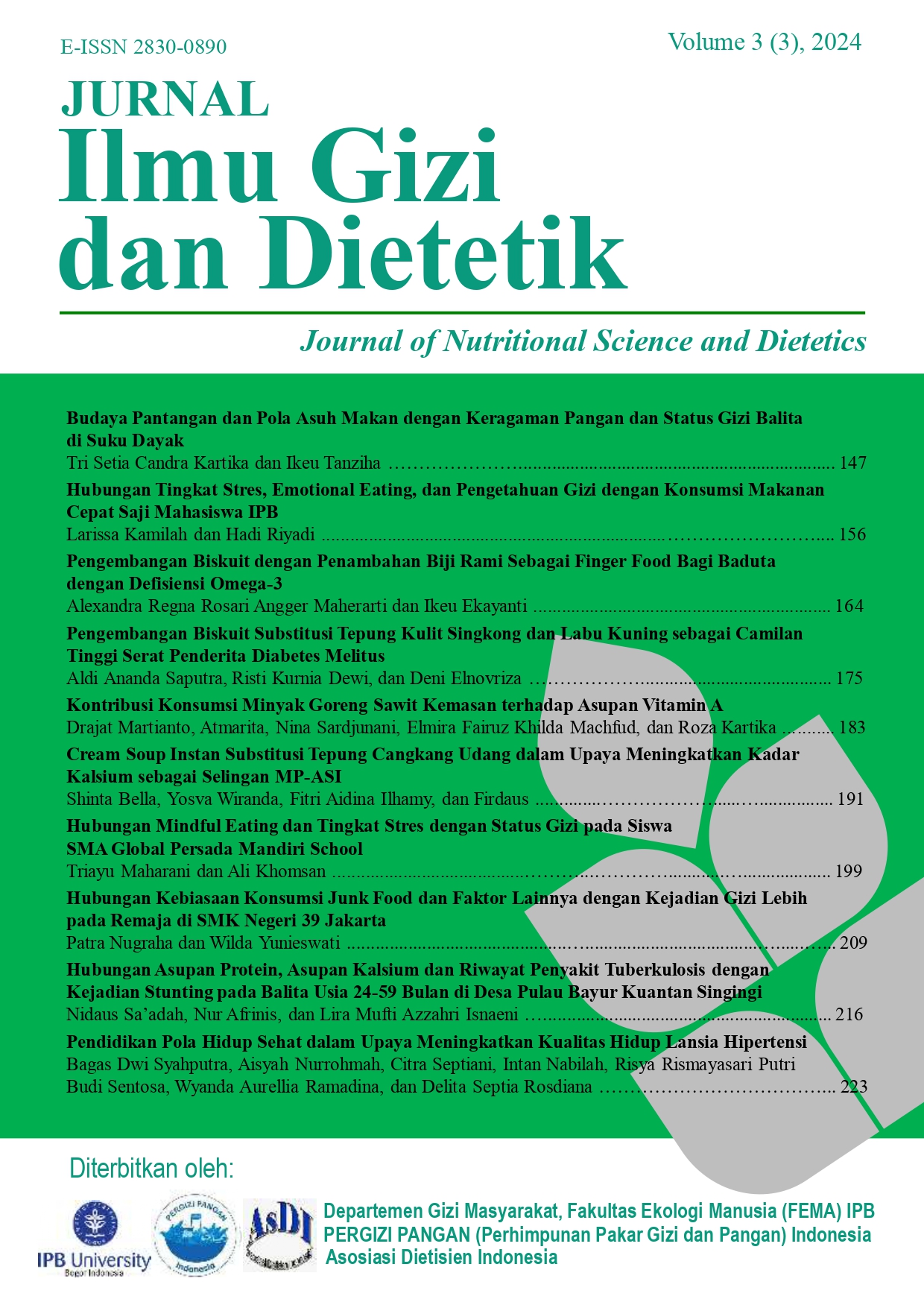Budaya Pantangan dan Pola Asuh Makan dengan Keragaman Pangan dan Status Gizi Balita di Suku Dayak Cultural Taboos and Eating Patterns with Food Diversity and Nutritional Status of Toddlers in the Dayak Tribe
Abstract
The growth and development of toddlers are greatly influenced by the quality of nutrition provided. An indicator that can be used to assess child growth and development is nutritional status. This study aims to analyze the relationship between food taboos and feeding parenting practices with dietary diversity and nutritional status of toddlers in the Dayak tribe of East Kalimantan Province. The research design used is a cross-sectional study. The study was conducted in December 2023 on 100 Dayak toddlers. The study has passed ethical review with the number 1098/IT3.KEPMSM-IPB/SK/2023. Data collection was carried out using three methods: interviews, questionnaires, and direct anthropometric measurements. The study showed that most subjects did not practice food taboos (80%). Nearly all subjects had appropriate feeding parenting practices (97%). Most subjects had a moderate level of dietary diversity (50%). The nutritional status of most subjects was normal, but there were still toddlers with underweight (18%), stunting (24%), and wasting (17%) statuses. Correlation tests showed a significant relationship between feeding parenting practices and dietary diversity (p=0.006). Additionally, a significant relationship was found between dietary diversity and the nutritional status of toddlers based on height-for-age (p=0.020). However, no significant relationship was found between food taboos and feeding parenting practices with dietary diversity and other nutritional status indicators were not mentioned.

